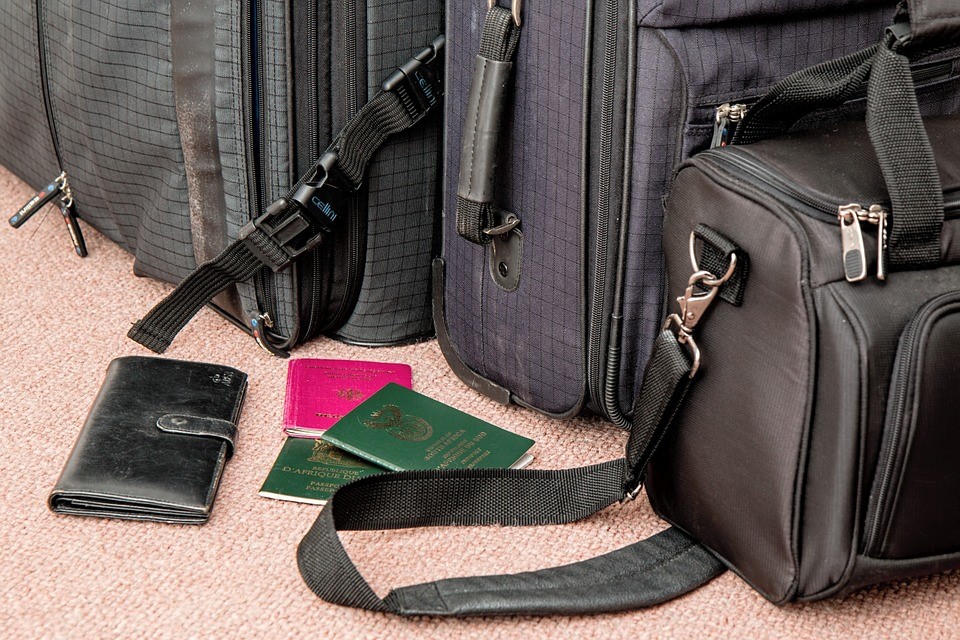Islamic Banking
Japanese, Singaporean Passports Top Travel Freedom Index

Although the pandemic has played havoc with cross-border travel, when that factor is set aside, an index of which passports give holders ability to visit countries without a prior visa gives top billing to Japan, followed by Singapore.
Japanese passport-holders theoretically are still able to visit more countries without a prior visa than citizens from any other country, although COVID-19 controls have hampered movement, new figures show.
Citizens from the Asian country can visit 193 countries without having to arrange a visa in advance; in second place is Singapore, whose citizens can visit 192 countries on the same basis, according to the Henley Passport Index, issued by Henley & Partners, a firm specialising in advising people on cross-border matters such as citizenship/residency-via investment.
A third Asian nation – South Korea – is third in the rankings; its citizens can visit 191 destinations without a prior visa. Germany is in joint third place, Henley & Partners said.
As has been the case for most of the index’s 16-year history, the majority of the remaining top 10 spots are held by EU countries. The UK and the US, whose passport strength has weakened since they held the top spot in 2014, share joint seventh place, with a visa-free/visa-on-arrival score of 187.
The latest results indicate that the gap in travel freedom is now at its largest since the index began in 2006, with Japanese passport holders able to access 167 more destinations than citizens of Afghanistan, who can visit only 26 destinations worldwide without acquiring a visa in advance.
The COVID-19 lockdowns have temporarily thrown such considerations up in the air. Talk of “vaccine passports” raises questions about whether they might affect such rankings.
Ugur Altundal and Ömer Zarpli of Syracuse University and the University of Pittsburgh, respectively, said in the Henley & Partners report that there is a danger that vaccine passports will create perverse incentives. “Given that people will likely need to be vaccinated every year, developed countries might seek to secure vaccine supplies for future use. Ultimately, this could prolong the pandemic and raise the risk of further mutations. There is also no scientific consensus on how long immunity from COVID-19 will last after receiving a vaccine, or over whether vaccines actually prevent the spread of the virus.”
China and the UAE climb global ranking
China has risen by 22 places in the ranking since 2011, from 90th
position with a visa-free/visa-on-arrival score of just 40 to
68th position with a score of 77.
One of the biggest turnarounds is the United Arab Emirates. In 2011, the UAE was ranked 65th with a visa-free/visa-on-arrival score of 67, while today, thanks to the Emirates’ continuing efforts to strengthen diplomatic ties with countries across the globe, it is ranked 15th with a score of 174.
The report noted that it is ironic - Japan is ranked in top place but recently decided to bar spectators from abroad from the rescheduled Olympic and Paralympic Games Tokyo 2020, slated to start in July.
“While nobody expects a return to pre-pandemic mobility levels anytime soon, the outlook now is certainly more hopeful than it was even a few months ago,” Dr Christian H Kaelin, chairman of Henley & Partners, said.
Future moves
Dr Parag Khanna, founder and managing partner of FutureMap,
writing in the Henley & Partners report, said that the second
half of the year may well see millions of people scattering
again. “The shifting patterns of migration in the post-COVID
world (when it comes) will be non-linear and perhaps
unpredictable.”
“They will mimic the reality of a world in which there are many unfolding crises, from pandemics to climate change to political polarisation. Countries facing fiscal pressures as well as skilled labour and investment shortages will seek to attract and recruit everyone from start-up entrepreneurs who can stimulate innovation to doctors and nurses who can boost public health services. The global war for talent is now well underway.”
Greg Lindsay, director of Applied Research at NewCities, said in the report that “destinations ranging from Helsinki to Dubai in terms of climate and temperament are already drafting programmes and policies targeting footloose talent whose employers have given them permission to roam.”
While there are nations which tolerate or even encourage dual citizenship in some cases, some nations such as the US are less amenable, the report said.
Annie Pforzheimer, senior non-resident associate at the Center for Strategic and International Studies and a member of the Council on Foreign Relations, said the polarised political environment meant that “immigration reform faces significant headwinds,” with strong resistance from Republicans to President Biden’s plan. Pforzheimer said “Congress also must take steps regarding the EB-5 Immigrant Investor Program, due to expire on 30 June.” An EB-5 Reform Bill has been introduced, but Pforzheimer said “while there may not be opposition to the bill, moving legislation at all has been thorny in the US Congress.”